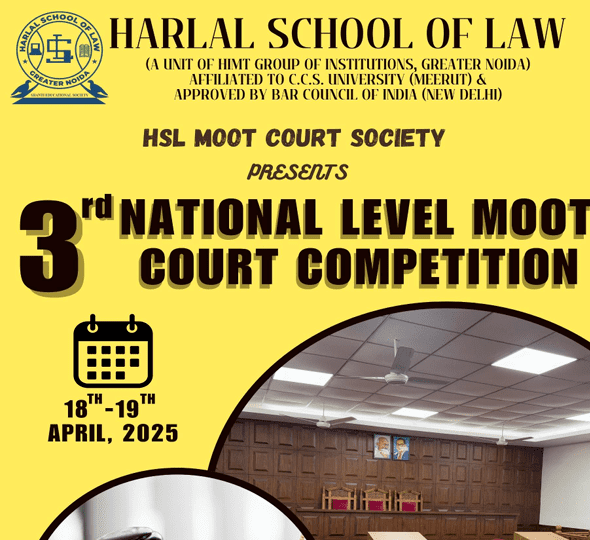Introduction
The case of Sita Soren v Union of India also goes by the name of Jharkhand Mukti Morcha case. The case explores the immunity granted to the members of parliament under Article 105 of the Indian Constitution and members of state legislative assemblies under Article 194 of the Indian Constitution. This case sheds light on the immunity from prosecution which was given to the members of parliament and state legislative assemblies by the judgement of PV Narasimha Rao v State ,1998 but is now overturned by the ruling of a seven judge bench in the case of Sita Soren v Union of India. As the members of parliament are vested with a lot of responsibilities and power it is crucial to give them immunity from certain things such as freedom of speech of anything said during the parliamentary proceedings. The objective behind giving immunity to these members is to ensure smooth functioning of the legislative proceedings. However, giving them immunity for taking bribe would mean to place them above the law which doesn’t align with the objective of Article 105 and Article 194.
Facts of the Case
The appellant, Sita Soren, is a member of the legislative assembly of Jharkhand and hails from the party of Jharkhand Mukti Morcha. Sita is the widow of late Durga Soren who is the eldest son of Shibu Soren, and is currently onto her third term as a legislator from the seat of Jama in Jharkhand. On 30 March 2012, an election took place to elect two members of Rajya Sabha representing the state of Jharkhand. The appellant faced the allegation of accepting bribe from an independent candidate in return of casting the vote in his favour in the Rajya Sabha elections. Nonetheless, due to the open ballot system of voting in Rajya Sabha it was disclosed that she didn’t vote for that candidate and instead gave her vote to a member of her own party, the Jharkhand Mukti Morcha. However, this round of election got annulled and voting took place again. Just like the previous time, this time also the appellant voted in favour of the candidate from her own party.
The petitioner was accused of criminal conspiracy under Section 120B along with offence of bribery under Section 171E of the Indian Penal Code,1860 and criminal misconduct by a public servant under Section 13(1)(d) of the Prevention of Corruption Act,1988. The petitioner moved to Jharkhand High Court for quashing of the chargesheet filed against her. She asserted her protection under Article 194 (2) which states that members of state legislature are not liable to be produced in any court for anything they say or vote on in the legislature. Notwithstanding with this claim of the petitioner , the high court refused to quash the allegations on the fact that she did not vote for the person who gave her bribe to do so and since the act for which the bribe was given didn’t take place, immunity for prosecution would not apply,
On 26 March 2014, the petitioner appealed the judgement of high court in the Supreme Court through a Special Leave Petition. However, the two judge bench was of the view that since the matter is of “ substantial and general public importance” it should be placed before a three judge bench of the Supreme Court. On 7 March 2019, the three judge bench considered this to be an issue of public importance and observed that in the case of PV Narsimha Rao such a matter was dealt by a five judge bench so they concluded that the matter shall be referred to a five judge bench.
Eventually, on 20 September 2023, an order was released by the five judge bench doubting the rightness of the judgement pronounced in the case of PV Narsimha Rao. As a result of which the matter was referred to a bench of seven judges in the Supreme Court. They mentioned three reasons why they felt that the judgement needed reconsideration by a larger bench. The first reason being fundamental purpose and objective of such provisions which is to make the members of parliament and state assemblies free enough to express their views and cast their votes in either of the houses. The second reason observed an anomaly; if the bribe is accepted for speaking or voting in a particular manner and in fact does it in that way then he would be given immunity from prosecution. On the other hand, if a bribe is accepted for voting in a particular manner and an act contrary to that is done , no immunity from prosecution will be given. The third bone of contention was the question that when the offence of bribery would be complete.
On 4 March 2024, a seven judge bench comprising of Chief Justice of India among others unopposed held that parliamentarians don’t enjoy parliamentary rights under Article 105 and Article 194 for the acts of bribery. Their decision led to overturning of the 1998 judgement.
Issue of the Case
- If the expression “in respect of” in Article 105 (2) has a broad meaning” and entails that an MP is protected from any proceedings in a court of law that relate to, concern or have a connection or nexus with anything said or a vote given by him in Parliament?
- If the alleged bribe takers are entitled to immunity under art 105 as the alleged conspiracy and acceptance of the bribe was in respect of the vote against the no confidence motion..
Analysis
Using earlier rulings on parliamentary privileges, the Supreme Court bench decided that Indian legislatures may not be granted privileges unrelated to their duties.The Court made clear that stare decisis is not an unchangeable legal principle. A legal doctrine known as stare decisis requires judges to follow earlier decisions when making decisions in cases that are similar to one another. When discussing the contradictory results in the P.V. Narasimha Rao case, an already established judicial precedent, the Bench pointed out that this decision incorrectly connects the commission of the act of bribery to the offence of bribery. The court concluded that this reading is in conflict with the intent and wording of Article 105 : Powers, Privileges and Immunities of Parliament and its Members and Article 194 : Powers, Privileges and Immunities of State Legislatures and their Members of the Indian Constitution.
The main question, namely whether the privileges confer immunity on a legislator who participates in bribery in connection with his or her speech or vote, was also addressed by the bench. It ruled that because accepting or agreeing to accept bribes is not “in respect of” a member’s right to speak or vote in the House, Clause (2) of Article 105 which states :
No member of Parliament shall be liable to any proceedings in any court in respect of any thing said or any vote given by him in Parliament or any committee thereof, and no person shall be so liable in respect of the publication by or under the authority of either House of Parliament of any report, paper, votes or proceedings. does not offer immunity against bribery to any individual.
The Court pointed out that the corruption and bribery conducted by the legislature damages the well established foundation of India’ parliamentary system and democracy and further deprives citizens of a responsible, responsive and representative democracy. It ruled that the offence of bribery is independent of the performance of the agreed action and solidifies on the exchange of illegal gratification. Hence, the offence of bribery is complete at the point in time when the legislator accepts the bribe.
The Supreme Court of India ruled that a member of Parliament or the Legislative Assembly, as the case may be, cannot assert immunity from prosecution on an allegation of bribery in a criminal court due to Articles 105 and 194 of the Constitution. Accordingly, it was decided that the purpose of Articles 105 and 194 of the Constitution is to maintain an environment surrounded with debates and discussions. When a member is accepting bribes to vote for someone or give speech in a particular way, ultimately the goal is defeated.
Conclusion
The Supreme Court had on many occasions expressed discomfort with the judgement of PV Narsimha Rao which was given by a narrow majority of 3:2 but was waiting for a relevant case to challenge the reasoning of the aforementioned case.The examination of Sita Soren vs Union of India case shows that expanding parliamentary privileges to give immunity to legislators in bribery cases would enable legislators to abuse their powers which is against the fundamental goals of Articles 105 and 194 of the Indian Constitution. It is more than just buying their vote or speech; rather, it is buying their prestige as a member of the legislature. As a result, the Supreme Court’s ruling not only ends a protracted legal dispute but also establishes guidelines for addressing the privileges guaranteed by Articles 105 and 194.






